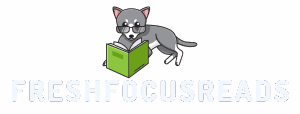In a world where routine can feel like a never-ending loop of monotony, creative thinking jobs stand out like a unicorn in a sea of gray suits. These roles aren’t just about brainstorming wild ideas; they’re about transforming the ordinary into the extraordinary. Whether it’s crafting captivating marketing campaigns or designing the next viral app, creative thinkers are the wizards of innovation, conjuring up solutions that leave the mundane behind.
Imagine getting paid to daydream, solve problems with flair, and turn your quirky ideas into reality. Sounds like a dream, right? From advertising to game design, the opportunities for those who dare to think differently are endless. So, if you’ve got a knack for creativity and a passion for making things happen, it’s time to explore the vibrant world of creative thinking jobs that await you.
Table of Contents
ToggleOverview of Creative Thinking Jobs
Creative thinking jobs encompass a variety of roles across multiple industries. These positions often require individuals to cultivate original ideas and implement innovative strategies. Market research analysts collect and analyze data to help companies make informed decisions. Graphic designers combine art and technology to communicate concepts visually. Content creators, including writers and video producers, engage audiences through compelling storytelling.
In advertising, copywriters develop persuasive messaging that resonates with target demographics. Digital marketers use creativity to craft unique campaigns that capture user attention. Software developers take imaginative ideas and turn them into functional applications that solve real-world problems. Product designers balance aesthetics and usability to create user-friendly products that enhance everyday experiences.
Creative roles foster collaboration among diverse teams. Designers often work with engineers, marketers, and business executives to ensure cohesive project execution. In addition, these jobs provide opportunities for professional growth and personal satisfaction. Professionals can explore freelance opportunities that allow for flexibility and diverse projects. Local communities and online platforms offer networking spaces for creative individuals to exchange ideas and build connections.
Demand for creative thinking jobs continues to rise as businesses recognize the value of innovation. Companies seek diverse talent that can adapt to a constantly changing marketplace. Candidates with strong problem-solving skills and creative insights stand out in a competitive job market. Various resources, such as workshops and online courses, enable individuals to enhance their creative skills and pursue fulfilling careers.
Types of Creative Thinking Jobs
Creative thinking jobs span a variety of fields, providing ample opportunities for innovative individuals. These roles require unique skills and encourage out-of-the-box problem-solving.
Art and Design Careers
Art and design careers attract individuals passionate about visual storytelling. Graphic designers craft compelling visuals for brands and products. Illustrators depict ideas through unique artworks, while animators bring stories to life with dynamic imagery. Fashion designers create clothing that blends aesthetics and functionality. Interior designers transform spaces into visually appealing environments, often reflecting clients’ tastes and needs.
Marketing and Advertising Roles
Marketing and advertising roles thrive on creative thinking to captivate audiences. Digital marketers develop strategies to enhance online visibility and engagement. Brand strategists establish brand identities that resonate with target markets. Creative directors oversee the development of advertising campaigns, guiding teams in storytelling. Social media managers curate content that nurtures brand interaction and strengthens connections with consumers.
Writing and Content Creation
Writing and content creation roles require strong communication skills and imaginative thinking. Copywriters generate persuasive text that drives consumer interest. Content creators produce engaging articles, videos, and podcasts that educate and entertain. Bloggers share insights and niche expertise, building loyal followings. Editors refine content, ensuring clarity and coherence while maintaining the author’s voice.
Skills Required for Creative Thinking Jobs
Creative thinking jobs demand a unique set of skills that empower individuals to excel in innovative environments.
Problem-Solving Abilities
Strong problem-solving abilities serve as a cornerstone for success in creative roles. Innovators identify challenges and explore multiple solutions efficiently. Originality complements analytical skills, enabling creative thinkers to devise effective strategies. Staying calm under pressure enhances decision-making, ensuring timely responses to obstacles. Engaging with diverse perspectives enriches problem-solving, fostering collaboration and idea exchange that leads to groundbreaking solutions.
Communication Skills
Effective communication skills play a vital role in creative thinking careers. Articulating ideas with clarity helps ensure that team members understand concepts and intentions. Creativity often thrives in team settings where collaboration is key, thus strong interpersonal skills enhance teamwork and productivity. Listening actively strengthens relationships, allowing for the integration of diverse viewpoints. Persuasion contributes to advancing ideas, persuading stakeholders and clients to embrace innovative initiatives.
Adaptability and Flexibility
Adaptability and flexibility distinguish successful creative thinkers in dynamic environments. Responding to shifting trends and demands requires a willingness to embrace change. Learning from setbacks fosters resilience, encouraging growth and innovative thinking. Open-mindedness invites new ideas, enhancing the creative process. Navigating unexpected challenges with ease keeps projects on track, allowing individuals to pivot and maintain momentum.
The Importance of Creative Thinking in the Workplace
Creative thinking drives innovation and boosts workplace productivity. Companies prioritize employees who bring unique perspectives, as these individuals often generate breakthrough ideas that differentiate brands. Diverse teams filled with creative thinkers demonstrate enhanced problem-solving capabilities, tackling challenges by approaching issues from various angles.
Collaboration benefits significantly from creative thinking. Team members who share imaginative insights foster a culture of open communication, where all ideas receive consideration. As employees discuss and refine concepts, the result often leads to improved project outcomes and stronger team dynamics.
Innovation plays a critical role in maintaining competitive advantage. Organizations that embrace creative thinking can react swiftly to market shifts and evolving consumer demands. By integrating creative approaches into strategic planning, these companies enjoy greater agility in their operations.
Additionally, creative environments promote employee engagement and satisfaction. When individuals feel encouraged to express their ideas, motivation and job satisfaction increase. An engaging workspace nurtures enthusiasm, resulting in lower turnover rates and a more committed workforce.
Investment in employee development yields substantial returns. Providing training and resources for enhancing creative skills leads to a more inventive workforce. Workshops, seminars, and online courses equip team members with the tools they need to thrive in a creative-thinking-centric environment.
Ultimately, integrating creative thinking in the workplace not only benefits individual careers but also propels organizations toward long-term success. As businesses engage and harness diverse talent, they create dynamic environments focused on continuous innovation and improvement.
Creative thinking jobs offer a unique opportunity for individuals to thrive in an increasingly innovative landscape. These roles not only allow for personal expression but also drive organizational success by fostering a culture of creativity. As the demand for innovative solutions grows, those with a knack for creative problem-solving will find themselves in high demand across various industries.
Embracing creativity in the workplace leads to enhanced collaboration and improved outcomes. By investing in their creative skills, individuals can unlock fulfilling career paths that align with their passions. Ultimately, the future of work will increasingly rely on the imaginative minds that challenge the status quo and inspire change.

